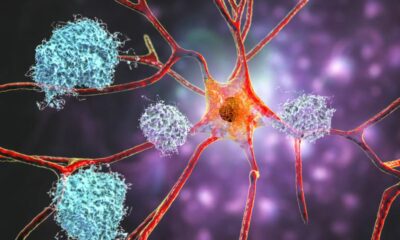It might be difficult to care for someone who has dementia or Alzheimer’s disease. Many caretakers are unprepared for the stress of attempting to successfully interact with a loved one who may be prone to agitation, verbal hostility, and hallucinations, on top of the financial and physical obligations.
Izabella De Abreu, M.D., an assistant professor of psychiatry at UT Southwestern Medical Center who specializes in geriatric psychiatry, the psychosocial symptoms of dementia, and caregiver burden, indicated that there are strategies to avoid or diffuse communication-based tension.
“Dementia may start with difficulty finding a word or repeating phrases, and it can evolve into increased reliance on nonverbal communication,” Dr. De Abreu said. “Communication barriers can be downright scary or anger-inducing for your loved one.”
Dr. De Abreu provided the following advice to promote fruitful dialogue:
Talk slowly and clearly. Establish eye contact and focus your entire attention on your loved one.
Reduce the number of outside distractions. Give the dementia patient enough time to react to you and let them talk for themselves.
Verify information by repeating it to ensure accuracy. Provide limited options, no more than one or two, so as not to overload them or cause more confusion.
Request that they finish tasks. Ask instead of telling when it’s time to take your prescription or finish that task. If individuals believe they have influence over the choice, they are more inclined to cooperate.
Avoid getting into arguments. Remain composed and forgive them if they misinterpret names or dates or other little information. Arguing with them will just cause unnecessary confusion and upset.
According to estimates from the American Association for Geriatric Psychiatry, over half of all dementia or Alzheimer’s patients are currently receiving care at home.
Dementia can cause behavioral changes that are more severe than cognitive symptoms like memory loss. Patients may begin to overmedication as a result of the caregiving load over time. Additionally, it can raise the caregiver’s chance of developing illnesses like anxiety, depression, reduced immunity, and disorders linked to overindulgence in food and obesity. It’s critical that caregivers never forget to take care of themselves.
According to Molly Camp, M.D., an associate professor of psychiatry with expertise in geriatric mental health, “caring for an aging family member or friend can negatively affect your physical health, mental wellness, relationships, and finances, no matter how much you love them.” Caregivers should talk to a healthcare professional about their own physical and mental wellbeing.

 Diabetology2 weeks ago
Diabetology2 weeks ago
 Diabetology2 weeks ago
Diabetology2 weeks ago
 Diabetology1 week ago
Diabetology1 week ago
 Diabetology2 days ago
Diabetology2 days ago















